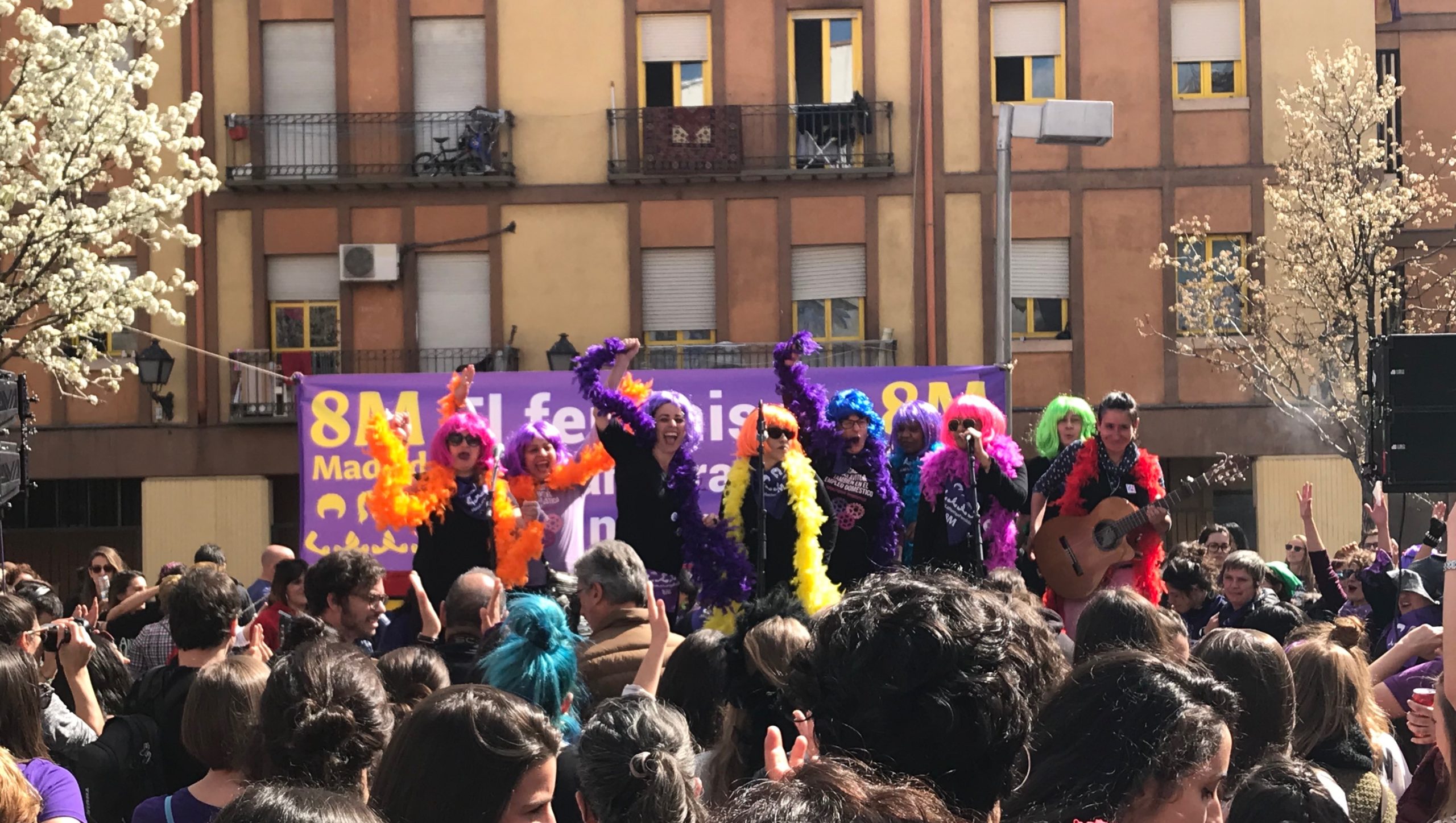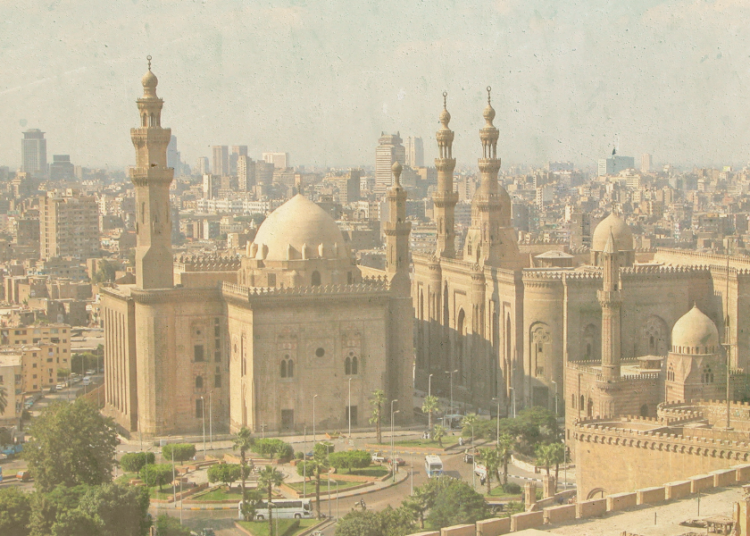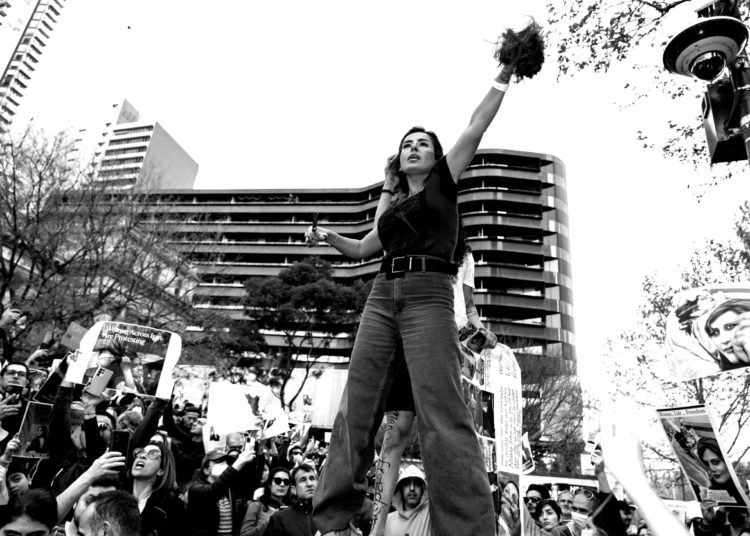This post is also available in: Français (French) العربية (Arabic)
Let me start by explaining why I am a feminist.
I am a feminist because I want all human beings to enjoy equal human rights and be equally free. That is, I do not want our equality to be understood solely through the lens of equal opportunities. I want an equality that allows us to build the lives we please. To me, one of the greatest benefits of equality was to be able to exercise my right to think in whichever way I want, and express it however and wherever I can and want, while actively overcoming all sorts of constraints, high walls and ideological obstacles.
I am a feminist because I believe in my right to be me, and not a version of me dictated by some state, God, party, man or even another feminist woman.
Like many other feminists around me, I have been recently observing a growing tendency towards a suffocating reductionism of the interpretation of the world, in how we deem it as acceptable, but also towards a force that keeps pushing us to adopt certain assumptions in a very religious manner, leading us to belong to different and often smaller groups, formed as a result of the litany of divergences coexisting in our movement. But I will not be the one to enter those. Having traveled this far, I cannot allow myself to enter new cages, new tribes or new herds with my own two feet.
Nothing is more anti-feminist than subjugating oneself to a higher entity or idea. At first, women were denied their capacity to think, and later on, to publicly express the views they have developed and the fruit of various discussions they have led. Right now, many amongst us are experiencing what I call a voracious hunger, accumulated over centuries, to listen to and explore this great diversity of voices, and in some instances, to be able to form our own views and share them, when necessary, with the rest of the society.
This basic act may seem simple, but it has cost us centuries of dungeons, bonfires, gags and rapes, and it is still costing as much to millions of women in the world today who are fighting to stop others from treating them as domestic animals or even less.
No one should dare ask us for silence or self-censorship in the name of the fight for equality. Equality without freedom is a new cage we should refuse to enter.
Solidarity, sisterhood, fraternity, struggles for social justice and political participation, are, as political theorist Hannah Arendt wrote, a form of love, “love of the world”. Hannah Arendt, the German-born Jewish thinker, carried the brunt of the costly narration of the collaboration of some Jews with the Nazi regime to make the Holocaust possible, because she had an unwavering commitment to freedom of thought in public life, which, in her opinion, together with art, represented the noblest form of living.
And like all love, to be, to be just love and nothing else, it has to be free and altruistic, because love, as psychologist Javier Barbero explained to me, is a feeling, but also a value, and as such, it is an exercise, a muscle to build, and expand. For this reason, feminism cannot be a space to create one’s own brand, glorify oneself, impose one’s opinions as categorical truths, and encourage “witch-hunts” against those considered wayward, now turned into arch-enemies.
“Equality without freedom is a new cage we should refuse to enter”
The reality is complex. Therefore, any simplistic analysis risks looking similar to what populists from all political stripes and the extreme right embrace and promote. Feminism should be the exact opposite: it is the movement that not only recognizes complexity, but also approaches it with the enthusiasm of the intellectual appetite that makes us want to understand, to flee prejudices, and to value judgments.

Madrid, 2019. By Patricia Simón.
I am a feminist because I want all girls and women in the world to have the right to be freethinkers. I will not agree with many, and I will love that their voices will have channels to be heard.
Some ‘toads’ that have been recently released are incomprehensible to me, with all the delusions they carry. As if by creating a parallel reality in which violence against women is all we discussed was going to make it disappear. As if by repeating a slogan so many times we were going to be able to explain the interwoven systems of oppression and the mechanisms they deployed to make large parts of the world's population become dominated by a powerful minority.
If I have learned one thing working on violence against women for fifteen years now, it is that we still have a long way to go in order to better understand how it configures us as a society and affects us as individuals.
Not all violence against women is sexist, nor are all grievances or discriminations. Verbal violence can just be verbal violence, and it is obviously different from physical violence. Harassment is harassment; it is not torture. Trafficking for sexual exploitation is not the same as prostitution. The different inequalities between men and women cannot be interpreted unfailingly without an intersectional analysis, just like harassment and abuse should not be interpreted without taking into account people’s positions, social class, as well as the age difference between them, and so on. And at last, a woman's consent cannot be questioned or invalidated only – and I emphasize only– because she has used drugs or alcohol before or during sex.
What would our solutions look like when we confuse or fail to acknowledge the many nuances and differences that exist? What dangerous discourse will this lead us to -and at times with our free will- about what can we do with our own bodies? How would it affect other areas, such as the right to abortion for example?
A blatant example of the consequences of such discourse appeared in Spain not so long ago. It showed us how in recent years, we have moved from focusing on the conquest of women's sexual freedom to presenting certain practices as incompatible with female desire.
After the collective rape case of Sanfermines, some fell into the trap of endeavoring to defend the innocence of the victim by alluding to the most conservative arguments of patriarchy: that a woman could rarely feel the desire to have sexual relations with several men at the same time, or to practice anal sex or submissive and even sadomasochistic behavior. And so, in order to defend the sexual freedom of the obvious victim of that violation – in which it was demonstrated that the five men attacking her had not even allowed her to express her rejection of them- the capacity to consent of all women began to be questioned.
“After the collective rape case of Sanfermines, some fell into the trap of endeavoring to defend the innocence of the victim by alluding to the most conservative arguments of patriarchy”
This is how we have arrived to the current proposal for a Law on Sexual Freedoms, that, as several analysts have stated, limits our freedom at the cost of imposing -from the left even- a puritanical and infantilized vision of our sexuality very similar to the one defended by the most conservative.
As psychologist and sexologist Lucía González-Mendiondo maintains: "You cannot act against sexual assaults taking the rape case of Sanfermines as a model. Because although they are much more common than we would like to believe, most sexual predators are known and trusted by their environment, including teachers and husbands; and with this exclusively punitive approach we are not going to eradicate a worldview, the heteropatriarchal one, which conceives us as a territory to invade, colonize and possess.”
If we want to stop being objects of an extractivist capitalism, we must also eradicate this conception of women as fragile beings, devoid of the power of decision or resilience. Notice how a lot of those who have the least to lose are also those who know best that living freely is worth taking risks; many of them, inconceivable from our point of view. And they know this truth despite their vulnerable situation, their little room for maneuver and their backpack of accumulated pain.
Take the case of migrant women for example. These women were the victims of European strict border policies. They had to resort to trafficking networks to be able to reach countries where they hoped they would be able to live free from sexism and violence. To achieve this, many of them were aware of the possibility of being raped along the way or even prostituted for a few years at the end of the journey.
When I asked them if it was worth it, they always shared the same answer -albeit in different words- to say: “So what was the alternative? Resign myself to what life had destined for me here? Accept that my daughters will suffer genital mutilation, violence of all kinds, and systemic poverty like me? At least I have tried, at least now I can try to have another life.”
It is true that the experiences of some these women are extreme and we have a duty to eradicate the contexts and actors that favor them, but borderline cases also remind us of the vanishing points of our own lives. The question marks of “where do we want to go?” and at “what cost are we willing to assume a choice?” But in this exodus, there is also a search for rights and freedoms.
“Like all love, to be, to be just love and nothing else, it has to be free and altruistic, because love is a feeling, but also a value, and as such, it is an exercise, a muscle to build, and expand”
Personally, it was clear to me that freedom involves risks that we must assume if we did not want to accelerate or contribute to the involutionary wave we are already immersed in.
Since September 11, 2001, the self-interested dilemma of security versus freedom has permeated all facets of our public and private lives: the fear of the unforeseen, the painful and the irreversible is opening the doors wide to states with forms of liberal democracy or even those governed by progressive parties, to reconfigure their relationship with the citizenry from a securitist approach.
Hand in hand with the hyper-vigilance and social control industries, they spy on us because we are always potentially suspicious.
The State is thus a gigantic Ministry of Defense in which its own citizens are interpreted as being the enemy. Within this framework, women are, as citizens, potentially dangerous subjects, and as carriers of a supposed vulnerable condition, subjects to protect.
It is normal then for the system to become overwhelmed by its own internal contradictions. The time has come to reset, and we must reset by demanding to be the actors of the redesign of our society.
If we fail to do so, we will keep falling into the pernicious culture of victimization: we will have value in relation to the degree that we suffer from discrimination, violence, impoverishment and pain. But what is clear now is that if we have come this far, it has been thanks to our ability to fight, overcome and enjoy. Without the enjoyment, we would not be talking about rights nor about equality, but about martyrs. Here, we have come to enjoy our rights and our freedoms. So let us defend and expand them.






























